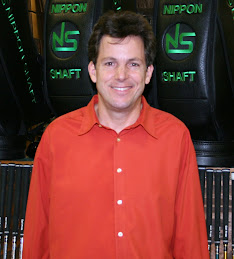
The above data lists the averages of the Tour Players that were recorded by the TRACKMAN Company. The TRACKMAN is the elite doppler radar system used on the PGA Tour to record both clubhead and golf ball flight data.
What story does the data tell? And what can I learn from this data?
First, as if you didn't already understand this- the PGA Tour Players are quite powerful and quite consistent. If you look at their carry distances with their irons and their distance gaps, you see that not only do they hit their irons a long way, but they have fairly consistent distance gaps between their clubs. This distance gapping allows them the best chance at distance control by having more full swing type shots into the greens. Most of us regular golfers do not have such uniform gaps between our clubs and we do not even have an accurate assessment of how far each of irons and wedges go.
With the advent of GPS and Laser Distance tools, we have at our fingertips, the ability to measure and learn both our distances of each of irons and wedges, and thus have the same information as the Tour Players. And if we take the necessary steps to adjust our irons, we can have uniform distance gaps between clubs, just like the tour professionals.
The second powerful piece of data is regarding the driver attack angles of the PGA Professionals. It is a reality that a more positive angle of attack, in the 3 to 4 degree range, leads to greater driver distance, yet the PGA Tour average is negative 1.9 degrees. This happens because the tour players are not really super concerned about squeezing every last yard out of their games/swings. In fact, the PGA Tour, especially with the advent of lesser grooved geometry irons, is more and more about driver control. Swinging on an upward angle creates the ability for the ball to launch higher and spin less, and thus gaining more distance, but it is a different swing than the tour players "normal" swing, and not every player can be as accurate when they choose this swing variation. It is a distance/control trade-off, that most Tour Players can not reconcile.
Yet, if you look at the same data from the LPGA Tour, you will see the driver attack angle number jump to a positive 3 degrees. The LPGA Players are shorter hitters than the men's tour and the distance/control tradeoff is a benefit to the majority of the players.
All of us regular players, meaning any player who needs more yardage, would be best served if we learned, preferably with the help of a TRACKMAN system, and/or a good instructor, how to adjust our natural swing so as to make a positive angle of attack with our driver. The extra yardage for most, is well worth the time and expense invested in achieving a more efficient driver attack angle.


